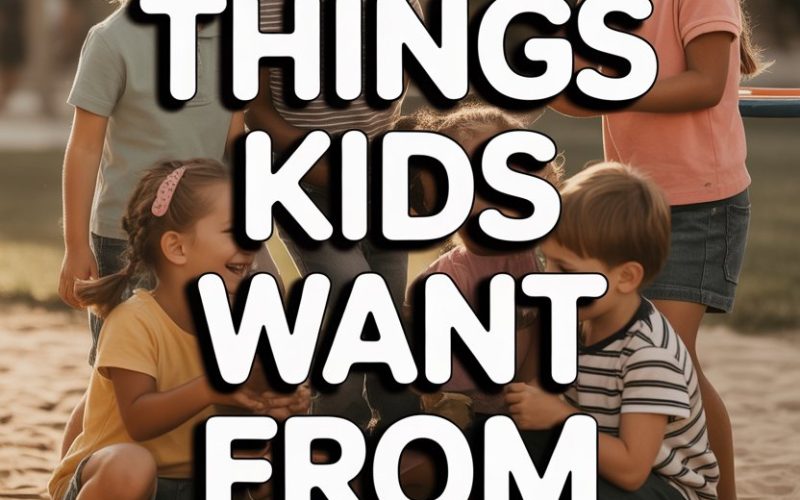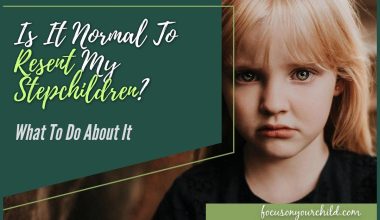Ever wish your kid came with a user manual? Welcome to the club.
While children remain stubbornly resistant to formal documentation, they do tend to drop hints—sometimes subtle, sometimes about as subtle as a marching band in the lounge room.
For busy parents (so, all of us), tuning in to what kids crave isn’t just nice, it’s essential. Here’s what they’re really hoping for.
Spoiler: It’s not more screen time.
1. Real Attention (Not Just “Uh-huh”s)
There’s listening, and then there’s listening. Kids pick up quickly when your mind is at work, on the dinner or halfway through an email.
They don’t need every second, but genuine eye contact, a pause in your scrolling, and actual engagement send a clear message: “You matter.”
Psychologists have found that children whose parents are attentive and responsive tend to have better emotional regulation and stronger relationships later on. No pressure.
2. Consistent Boundaries
“Can I have ice cream for brekkie?” It’s tempting to say yes just to keep the peace, but kids feel safer with clear boundaries.
They might push, test, and even stage the occasional protest, but structure gives them the security to flourish.
Boundaries aren’t about being rigid; they’re about predictability.
A renowned study from the University of Minnesota shows that kids raised with reasonable, enforced boundaries experience less anxiety and develop a stronger sense of self-control.
3. Playtime (On Their Terms)
Yes, life gets hectic. But even ten minutes of play signals to kids that you value their world.
It doesn’t have to involve elaborate crafts or a Pinterest-worthy puppet show. Sitting on the floor, letting them pick the game—even if it’s the 4,000th round of “shops”—is gold.
Research from Harvard’s Center on the Developing Child has linked regular parent-child play to better language skills and social competence.
No need to win at snap. Just show up.
4. Affection—Big and Small
A hug in the morning. A ruffle of the hair. A gentle squeeze of the hand before bed. Little gestures of affection fill a kid’s emotional bucket, and they don’t have an upper limit.
Even tweens pretending to be “beyond all that” secretly relish a bit of closeness (though maybe not in front of their mates).
Physical touch, according to the Child Mind Institute, is linked to lower stress, improved mood, and stronger parent-child bonds. Sprinkle it around liberally.
5. Encouragement for Effort—Not Just Results
Turns out, raising a future Nobel Prize winner isn’t about handing out gold stars for every little thing. Kids crave recognition for trying, for sticking with challenges even when things get tricky.
Praising effort over outcome fosters a “growth mindset,” as Carol Dweck’s research famously shows.
So, next time your child’s artwork looks like a Jackson Pollock after a bumpy bus ride, focus on the effort, not the result.
6. Space to Make Mistakes
No one likes seeing their child upset, but bubble-wrapping them through life isn’t doing anyone favours. Kids need the space—and your blessing—to mess up, fix it, and try again.
Whether it’s a toppled Lego tower, a botched apology, or a maths test gone sideways, letting them learn through experience builds resilience.
When parents respond to mistakes with empathy rather than exasperation, kids develop better problem-solving skills and self-confidence, according to research published in the Journal of Family Psychology.
7. Honest Answers (Minus the Sugarcoating)
Children are world-class question-askers. “Why is the sky blue?” “Do dogs go to school?” “Will the tooth fairy find me if we’re on holiday?”
They want honest, straightforward answers, not elaborate fairy tales. If you don’t know—admit it. Kids respect (and learn from) your humility.
Being truthful, but age-appropriate, helps kids learn to trust you and develop their own sense of curiosity. The American Academy of Pediatrics recommends clear communication as the backbone of healthy parent-child relationships.
8. Uninterrupted Family Time
Sunday roast, Saturday pancakes, or a quick walk with the dog after dinner—whatever the tradition, regular time together makes kids feel anchored.
Rituals don’t have to be elaborate. The key is being fully present (yes, the phone can survive fifteen minutes without you).
A 2015 study from The Journal of Marriage and Family found that family routines, no matter how simple, are linked to better academic and emotional outcomes for children.
9. Respect for Their Feelings
Big feelings in little bodies can be overwhelming—for everyone. Kids want their emotions acknowledged, not dismissed. “You’re fine!” doesn’t have quite the same soothing effect as, “Looks like you’re pretty upset right now. Want a cuddle?”
Show that all feelings are allowed, even the tricky ones. Over time, this helps kids build emotional intelligence—a skill proven to improve mental health, according to Yale’s Center for Emotional Intelligence.
10. Room to Be Themselves
Every child comes with their own quirks. Whether yours is obsessed with dinosaurs, wants to wear a tutu to the shops, or dreams of being a magician, supporting their individuality builds real confidence.
Encouraging self-expression (within your boundaries—no glitter in the toaster, thanks) helps kids feel valued for who they are, not just for ticking boxes.
This sense of belonging is crucial for self-esteem, as highlighted by the Australian Parenting Website.
11. Reassurance That You’re Human Too
Parents are experts at putting on a brave face, but kids notice more than we think.
Admitting when you’re tired, frustrated, or made a mistake teaches children that everyone is a work in progress. Apologies go a long way.
When you model self-compassion (and maybe laugh off the odd burnt dinner), kids learn that perfection isn’t the goal—connection is.
Why This List Matters More Than Your To-Do List
The to-do list on your fridge will never be finished. That’s parenting. But these 11 wishes don’t demand superhuman effort (or a personal chef, though don’t we all dream).
A little extra connection, a bit more honesty, and a dose of empathy can transform daily life—not just for your kids, but for you too.
Tonight, try just one of these. Ditch the guilt for not ticking every box.
Your child isn’t looking for perfection—they’re looking for you. Lucky for all of us: you’re already exactly what they need.




